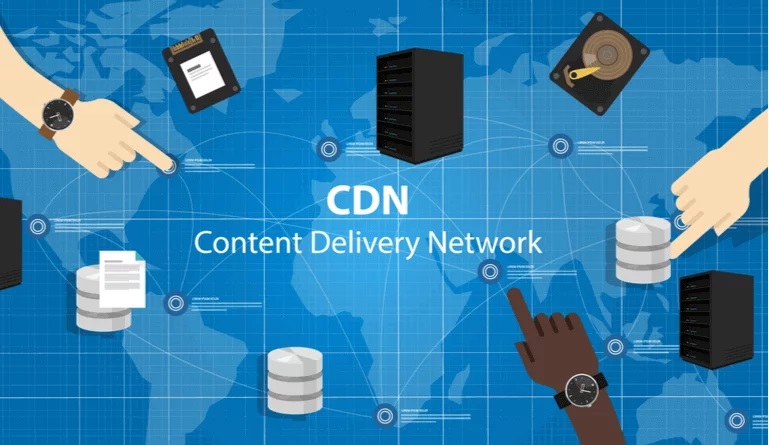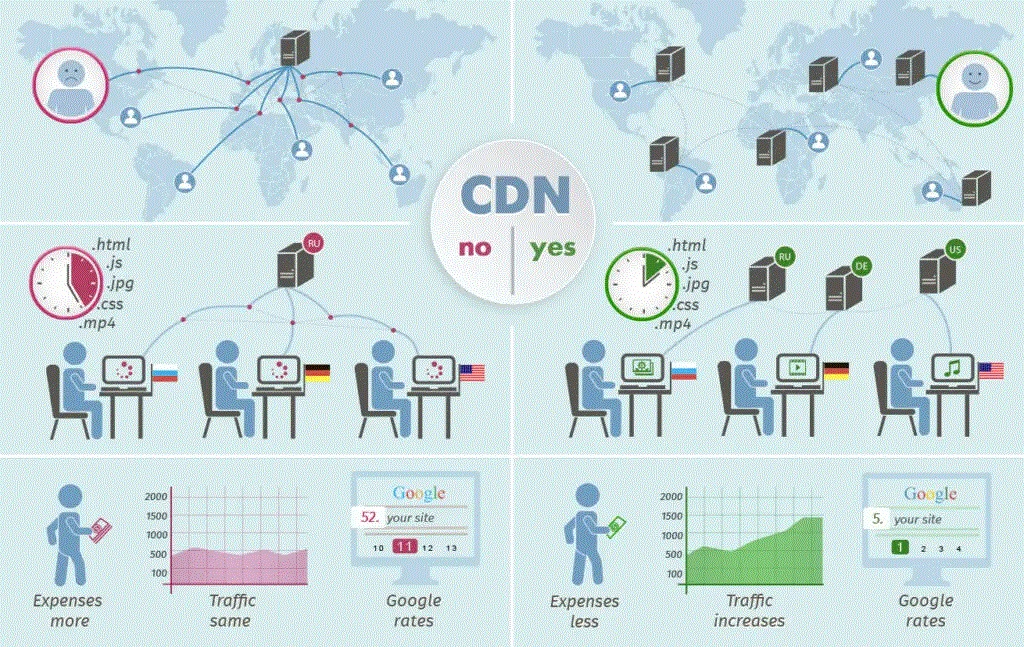
In today's digital landscape, where speed and performance are paramount, content delivery networks (CDNs) have emerged as a crucial component of web infrastructure. CDNs have revolutionized the way content is delivered to users, improving website performance, user experience, and global accessibility. In this article, we will explore what CDNs are, how they work, and the significant benefits they offer to businesses and end-users alike.
What is a Content Delivery Network (CDN)?
A Content Delivery Network, or CDN, is a geographically distributed network of servers strategically positioned around the world. CDNs work by caching and delivering content, such as web pages, images, videos, and other static or dynamic files, from the server closest to the user's location. By storing copies of content in multiple locations, CDNs minimize the distance data has to travel, reducing latency and enhancing website performance.
How CDN Works?
CDNs employ a technique called caching to optimize content delivery. When a user requests a webpage or any other content hosted on a website, the CDN acts as an intermediary between the user's browser and the origin server. Instead of retrieving the content directly from the origin server, the CDN delivers it from a nearby edge server that has a cached copy.
CDNs use intelligent routing algorithms to determine the optimal edge server to serve the content based on factors like the user's location, network conditions, and server availability. This ensures that users receive content quickly and reliably, regardless of their geographic location.
Benefits of CDNs
- Improved Website Performance: By delivering content from servers closer to users, CDNs dramatically reduce latency and minimize the time it takes to load web pages. This results in faster and more responsive websites, leading to enhanced user experiences and increased engagement.
- Global Reach and Scalability: CDNs have a vast network of servers distributed globally, allowing businesses to reach audiences in various geographical regions. With CDNs, content can be efficiently delivered to users across the world, ensuring consistent performance and availability.
- Enhanced Reliability: CDNs offer improved reliability and availability of content. By distributing content across multiple servers, CDNs mitigate the risk of server failures or network congestion. If one server is experiencing issues, the CDN automatically routes requests to alternative servers, ensuring uninterrupted content delivery.
- Reduced Bandwidth Costs: CDNs help reduce bandwidth costs for website owners. By caching and delivering content from edge servers, CDNs minimize the load on the origin server, effectively reducing the amount of data that needs to be transferred over the network. This can result in significant cost savings, especially for websites with high traffic or large media files.
- DDoS Mitigation: CDNs often include built-in DDoS (Distributed Denial of Service) protection mechanisms. By distributing traffic across multiple servers, CDNs can absorb and mitigate DDoS attacks more effectively, ensuring that websites remain accessible even during high-volume traffic surges.
- SEO Benefits: CDNs can positively impact search engine optimization (SEO). Faster page loading times, improved user experiences, and reduced bounce rates, all of which are facilitated by CDNs, contribute to higher search engine rankings. Search engines prioritize websites that provide a seamless and fast browsing experience.

Content Delivery Networks (CDNs) have become an essential tool for businesses seeking to deliver content quickly, reliably, and globally. By caching content on edge servers near users' locations, CDNs significantly improve website performance, reduce latency, and enhance the overall user experience. With the added benefits of scalability, reliability, cost savings, and DDoS protection, CDNs have become an integral part of modern web infrastructure. Embracing a CDN can be a strategic decision that empowers businesses to provide faster, more accessible, and engaging digital experiences for their users.





